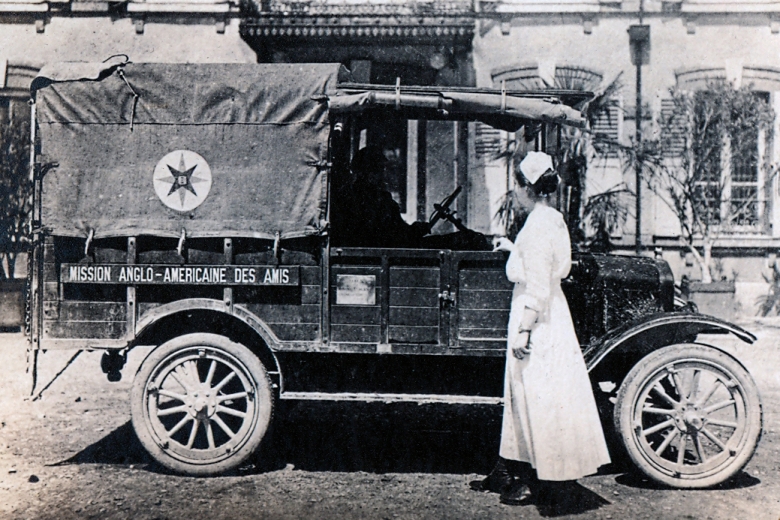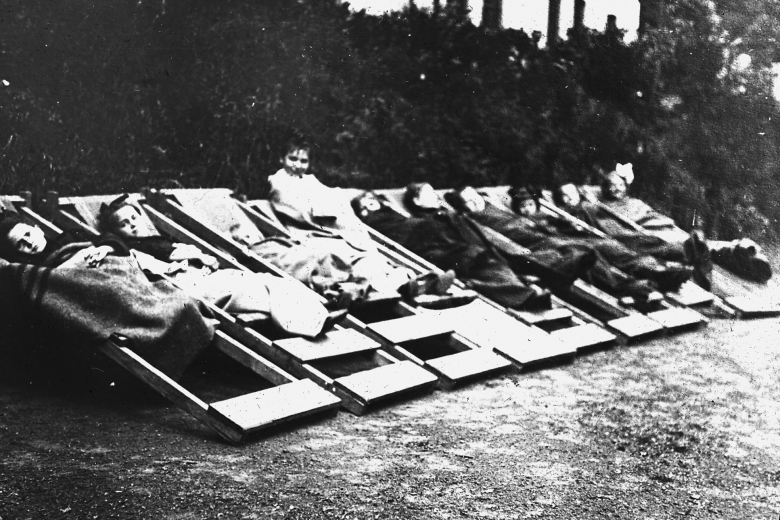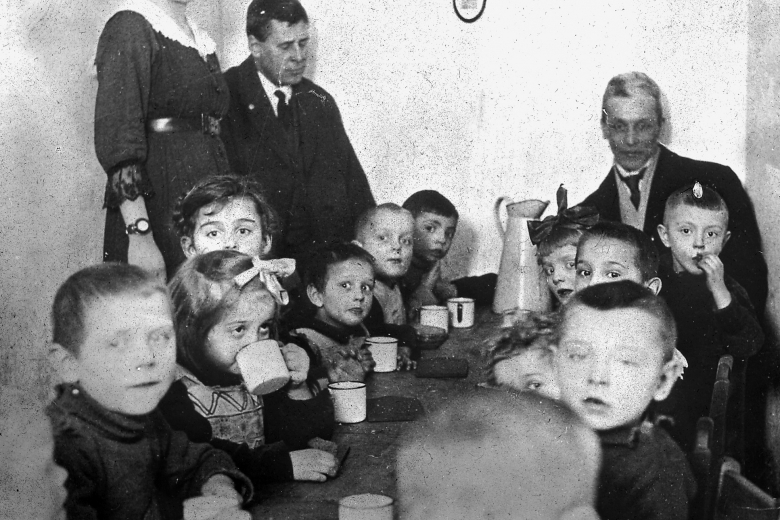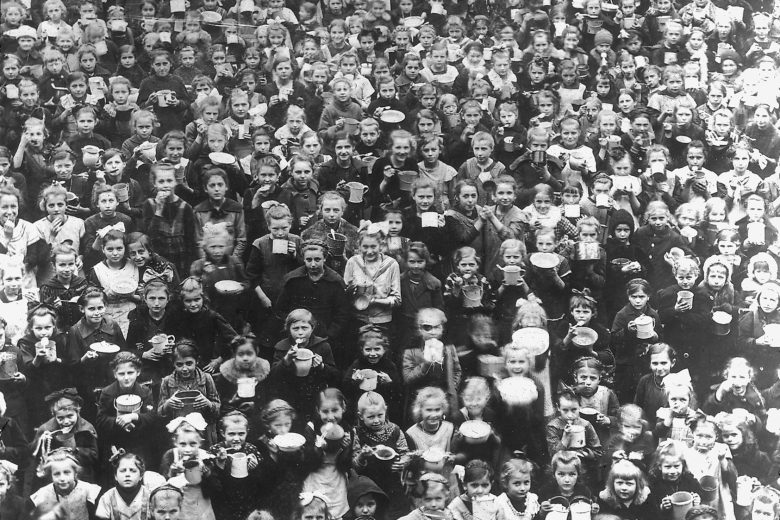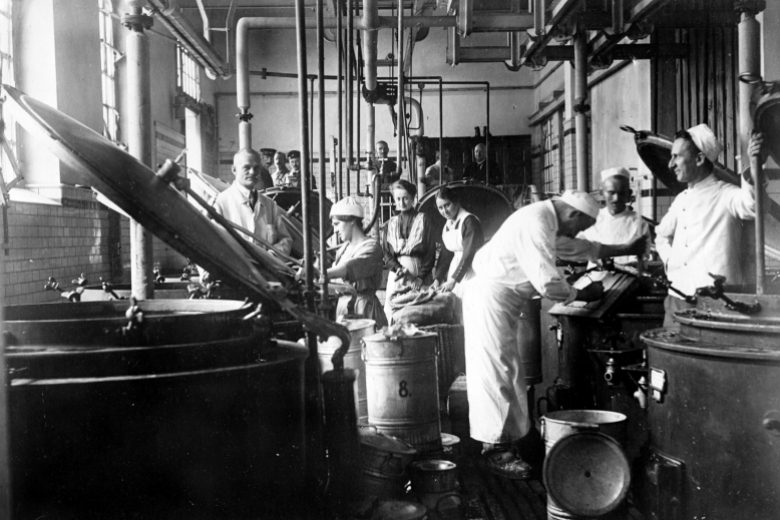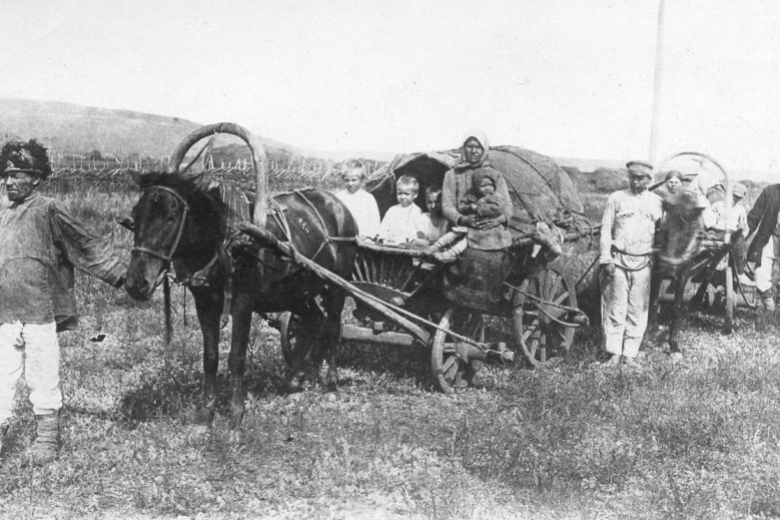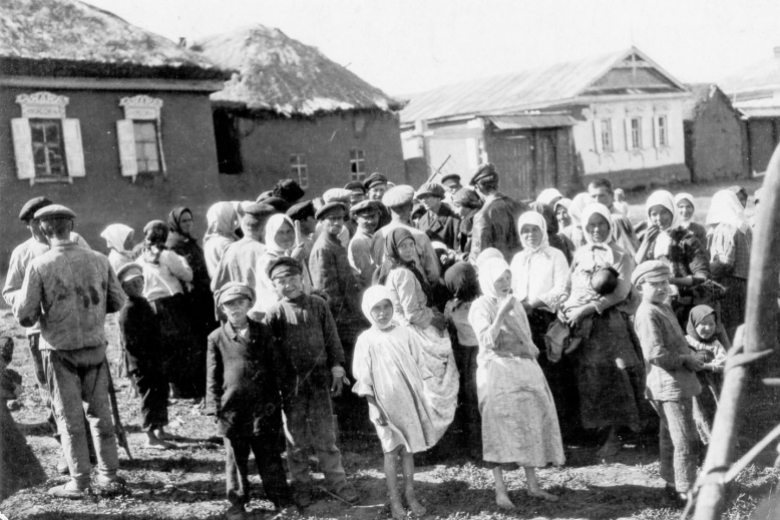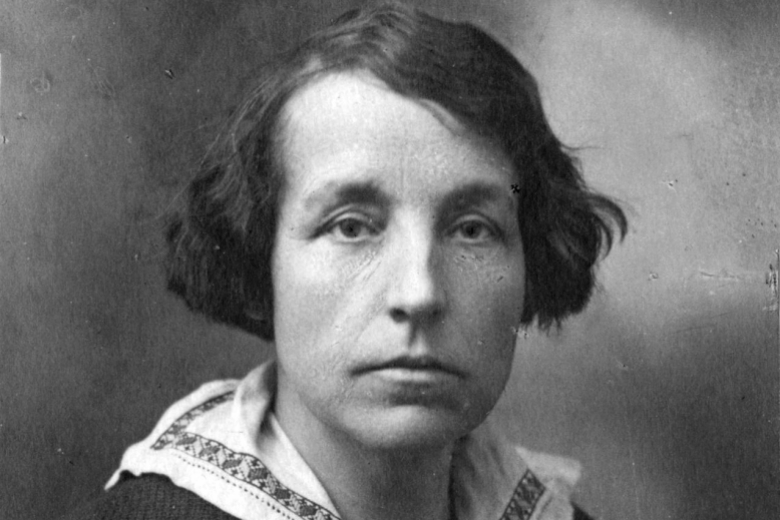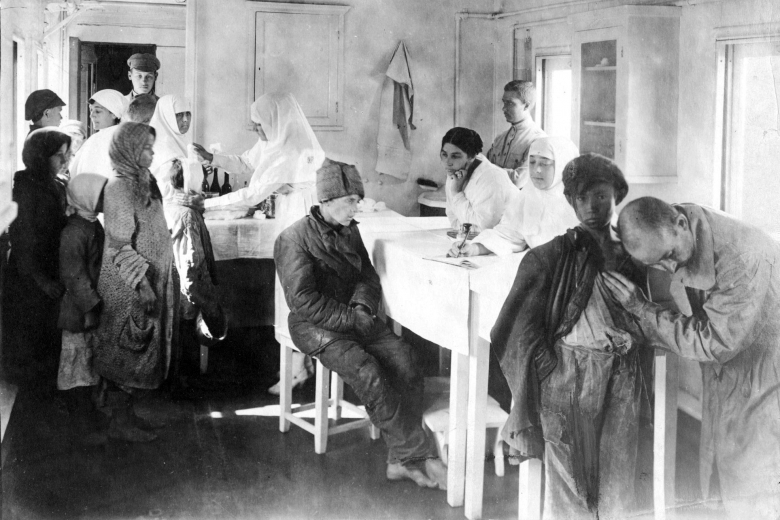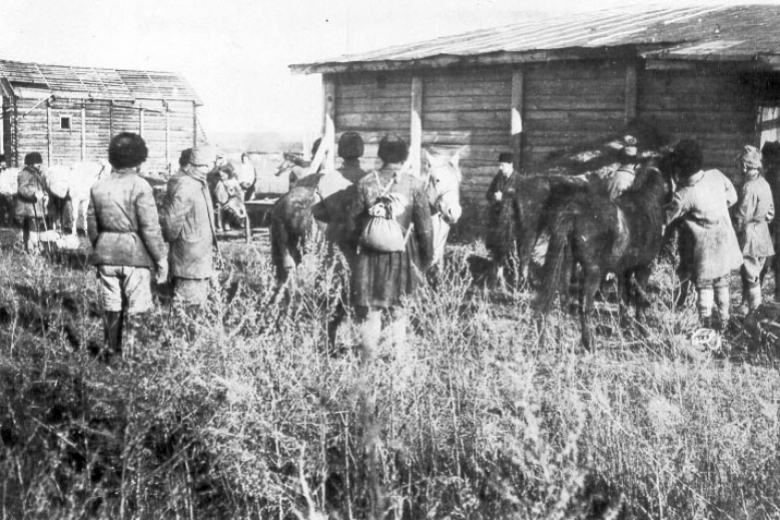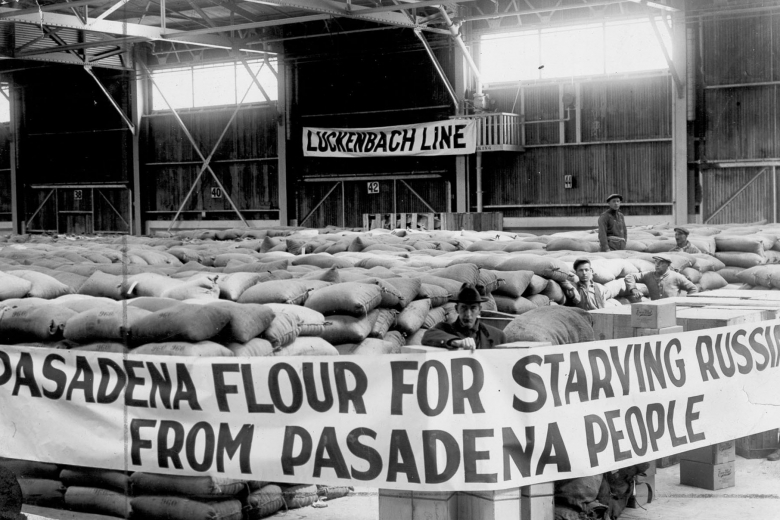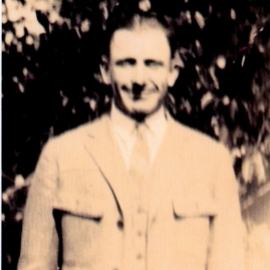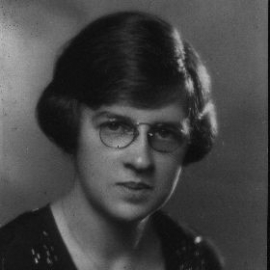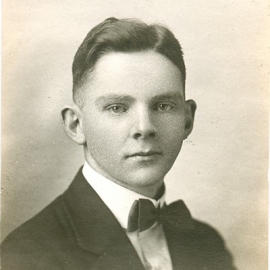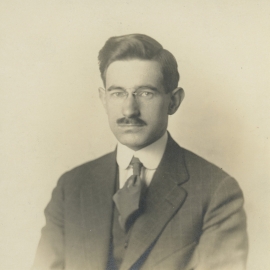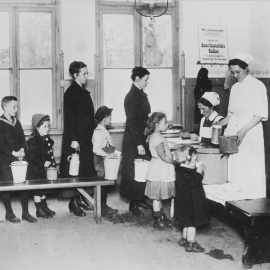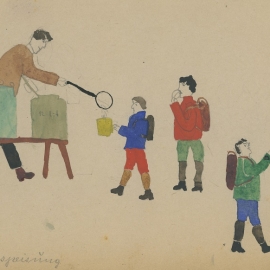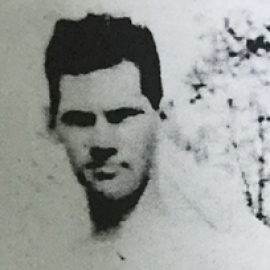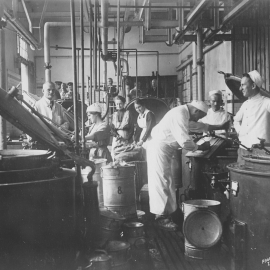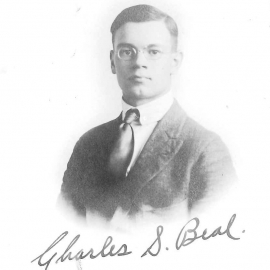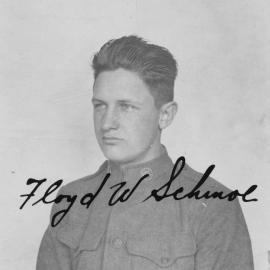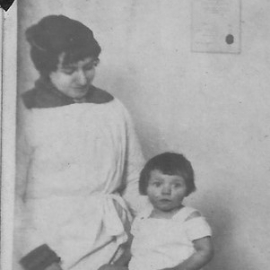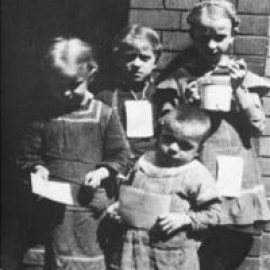The United States entered World War I in April 1917 and almost immediately instituted a military draft—with the threat of prison for those who refused to fight. Young pacifists urgently needed ways to serve their country nonviolently, which led to the creation of the American Friends Service Committee that April.
Early Service Committee volunteers drove ambulances in combat zones and built homes, roads, and villages in France. They also helped civilians in France, Belgium, Serbia, Austria, and Poland.
In the postwar era (1920-24), AFSC was willing to do what others would not—to house, feed, and train people scorned as “enemies.” We undertook child-feeding projects in Vienna, Austria, Germany and Poland, with funding arranged by Herbert Hoover, who then headed the U.S. Food Administration.
In the same period, Russia suffered an unprecedented famine due to the combined impact of WWI, revolution, a civil war, and two seasons of drought. A team from AFSC joined British Friends in Buzuluk, Russia in 1917, where they provided relief to tens of thousands of refugees. Beyond food, they delivered farm equipment, horses, and modern agricultural training.
By the end of WW I, a temporary Quaker response had become an enduring and highly regarded relief organization.


